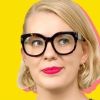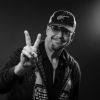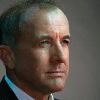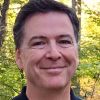10 Truth Books That Separate Experts from Amateurs
Recommended by Janet Machuka, Emma Gannon, and Penn Jillette to sharpen your understanding of Truth







What if the foundation of your beliefs was more fragile than you imagined? In an era awash with misinformation, understanding truth is more urgent than ever. Truth isn’t just a philosophical concept; it shapes how societies function, how we relate to each other, and how we navigate personal authenticity.
This collection features voices like Janet Machuka, who champions clarity in a noisy digital world, and Emma Gannon, who celebrates the joyful discovery of personal truth. Penn Jillette brings a skeptical, critical eye to the defense of factual knowledge. Their insights guide you through books that tackle truth from integrity and epistemology to cultural crises and spiritual quests.
While these expert-curated books provide proven frameworks, readers seeking content tailored to their specific experiences, beliefs, or learning goals might consider creating a personalized Truth book that builds on these insights, making your journey into truth both relevant and immediate.
Recommended by Janet Machuka
Social media marketing expert, creator @AfricaTweetChat
“@kongkip @_WisdomBooks I love love this book” (from X)
by Martha Beck··You?
by Martha Beck··You?
What started as Martha Beck's personal struggle with authenticity became a methodical guide to living with integrity. Drawing on her expertise as a Harvard-trained sociologist and life coach, Beck lays out a four-stage process inspired by Dante’s Divine Comedy to help you identify when your actions align with your true self. You’ll learn to decode internal signals that separate cultural expectations from genuine desires, gaining clarity on emotional healing and purpose. This approach suits those seeking not just self-improvement but a deeper connection to their own truth, especially if you find yourself trapped by people-pleasing or stale patterns.
Recommended by Penn Jillette
Magician and entertainer at Penn & Teller Theater
“@jhomey16 @jon_rauch Yeah, Jonathan is the best. What a book! And his others are great too.” (from X)
by Jonathan Rauch··You?
by Jonathan Rauch··You?
Jonathan Rauch, a senior fellow at the Brookings Institution and longtime contributor to The Atlantic, wrote this book driven by the urgent challenge of defending truth amid modern misinformation and social polarization. You gain a detailed understanding of the "Constitution of Knowledge," a social system that enables societies to separate fact from fiction through free inquiry and reasoned debate. The book explains how institutions and cultural practices have historically maintained shared facts and how their erosion today threatens democracy itself. If you grapple with media skepticism or want to grasp the forces shaping public discourse, this work offers clarity on why and how knowledge production matters now more than ever.
by TailoredRead AI·
by TailoredRead AI·
This tailored book explores the journey to uncover and live your authentic truth, focusing on your unique background and goals. It examines how personal beliefs, values, and experiences shape individual understanding of truth, offering a deeply personalized path to self-discovery. Through a synthesis of philosophical insights and practical reflection, the book reveals ways to navigate complex ideas and integrate authentic understanding into daily life. By focusing on your interests and addressing your specific challenges, it creates a meaningful learning experience that bridges expert knowledge with your personal truth exploration.
Recommended by Fareed Zakaria
Author of Ten Lessons for a Post-Pandemic World
“My book of the week is Post-Truth by Lee McIntyre. This is a slender volume from MIT's Essential Knowledge Series that looks at one of the most disturbing trends of our time: the increasing dismissal of science, evidence, facts, and truth itself. The author gives us an intelligent account of why it's happened and a compelling reminder that we should all fight back against this dangerous nihilistic idea.” (from Amazon)
by Lee McIntyre··You?
by Lee McIntyre··You?
Lee McIntyre, a research fellow in philosophy and history of science, draws on his academic background to explore the roots of our current post-truth era. You’ll gain insight into how denial of scientific facts, cognitive biases, and media shifts have converged to erode trust in evidence. The book examines specific cases like debates over climate change and election statistics to reveal the ideological motives behind dismissing facts. It’s especially relevant if you want to understand why reason sometimes loses to emotion and ideology, and how this shapes public discourse today.
Recommended by Timothy Cardinal Dolan
Archbishop of New York
“Cardinal Müller provides us with a luminous example of the harmony between faith and reason applied to contemporary moral issues. A man who has devoted his life to serving Jesus and his Church, the logic and clarity of Cardinal Müller's work is always wedded to a laser-like focus on Jesus Christ: the way, the truth, and the life.” (from Amazon)
by Cardinal Gerhard Müller··You?
by Cardinal Gerhard Müller··You?
Cardinal Gerhard Müller, a theologian who once led the Vatican's Congregation for the Doctrine of the Faith, tackles modern challenges to Catholic doctrine with a clear-eyed defense of traditional teachings. You will gain insight into how Catholic faith confronts contemporary crises, including apostasy and moral confusion, through detailed discussions anchored in The Catechism of the Catholic Church. The book includes his Manifesto of Faith, clarifying doctrines that have recently been questioned, making it especially relevant if you seek to understand the Church's stance amid today's uncertainties. This is a thoughtful read for those engaged in theology, clergy, and laypeople wrestling with faith in a complex world.
Recommended by Stewart Shapiro
Editor, Oxford Handbook of Philosophy of Mathematics and Logic
“Lots of books aim to provide a first introduction to symbolic logic. I predict that this one will be widely adopted throughout the English-speaking world. One of its unique strengths is that it broaches important philosophical issues that naturally arise in connection with symbolic logic. The book thus serves both as an introduction to logic itself and to the philosophy of logic.” (from Amazon)
by Nicholas J.J. Smith··You?
by Nicholas J.J. Smith··You?
Nicholas J.J. Smith, a senior lecturer in philosophy at the University of Sydney, draws on his deep expertise to deliver a rigorous yet accessible introduction to classical logic. This book goes beyond techniques, exploring not only how logic works but why it does, covering all major proof systems including trees, natural deduction, axiomatic proofs, and sequent calculus. You’ll gain clear insights into formal reasoning and its philosophical foundations, making complex concepts tangible through exercises and detailed explanations. This text is well-suited for students and thinkers eager to master logic’s role in reasoning, mathematics, and philosophy without getting lost in abstraction.
by TailoredRead AI·
by TailoredRead AI·
This tailored book offers a unique, step-by-step plan designed to accelerate your understanding of truth's role within society. It explores philosophical, social, and cultural dimensions of truth, examining how it shapes human interaction and collective knowledge. The content is personalized to match your background and specific interests, focusing on areas where you seek deeper insight. By guiding you through daily reflections and targeted explorations, it reveals the complexities and nuances surrounding truth, helping you gain clarity in an age of information overload. With a thoughtful balance of theory and practical inquiry, this book provides a tailored pathway that deepens your grasp of truth's influence on personal and societal levels.
Recommended by Stuart Stevens
Political strategist and author
“Another must view. @AjaRaden has written an important book that speaks to the moment. Wed at 7 pm ET.” (from X)
What if everything you believed about honesty was actually shaped by deception? Aja Raden, combining her background in ancient history, physics, and fine jewelry design, explores why lies persist and how they function in society. You’ll uncover detailed examples of cons, from pyramid schemes to hoaxes, and gain insight into the evolutionary reasons behind deception. This book challenges you to rethink belief itself, examining why you trust certain truths while others slip by unnoticed. If you're fascinated by psychology, societal dynamics, or the mechanics of trust, this book offers nuanced perspectives rather than simplistic answers.
by Alvin GOLDMAN··You?
by Alvin GOLDMAN··You?
Alvin Goldman's decades of experience as a Board of Governors Professor of Philosophy and Cognitive Science shine through in this exploration of epistemology's core puzzles. The book guides you through essential questions about knowledge, justification, and skepticism, unpacking topics like reliabilism and the Gettier problem with clarity and rigor. You'll also encounter fresh perspectives on how cognitive science intersects with epistemology and the intriguing challenges experimental philosophy poses. This text suits those aiming to deepen their understanding of epistemology's evolving landscape, from undergraduate students to graduate scholars, offering both foundational insights and advanced analysis.
Recommended by Mia Farrow
Actress and activist focused on truth and justice
“Feel disoriented? There is a map for this. It marks the dangers, gives them context, a history- a history of lies ( my words). But it’s shows our escape route. For me, this brilliant book by @michikokakutani is a clarion call to action from the place of Truth.” (from X)
by Michiko Kakutani··You?
by Michiko Kakutani··You?
Michiko Kakutani, a Pulitzer Prize-winning literary critic, offers a sharp examination of the cultural shifts that have undermined objective truth in America. You’ll gain insight into how social media, politics, and partisan ideologies have blurred the line between fact and fiction, drawing on historical thinkers like Orwell and Arendt to frame these changes. The book unpacks how truth became sidelined by personal biases and propaganda, providing context for the current climate of misinformation. If you’re looking to understand the forces dismantling public discourse and how society arrived here, this book lays out the intellectual landscape with clarity and urgency.
Recommended by John Steele
Professor at Brown University
“Van De Mieroop has written a very stimulating book on an important subject that has been ignored for too long. Philosophy before the Greeks will reignite the debate over Babylonian philosophy and make it relevant to scholars beyond the confines of Assyriology.” (from Amazon)
by Marc Van De Mieroop··You?
by Marc Van De Mieroop··You?
Marc Van De Mieroop, a Columbia University history professor, challenges the long-held notion that philosophy began with the Greeks by revealing a rich Babylonian tradition of systematic knowledge pursuit. You’ll explore how ancient Babylonians developed logic rooted in their cuneiform script, interpreted divine messages through divination, and established legal rules based on truth. Chapters on language study and royal justice showcase distinct ways Babylonians approached truth, offering you a fresh lens on ancient intellectual history. This book suits those intrigued by the origins of philosophy and the deep roots of truth-seeking beyond Western narratives.
by Austin Fife··You?
by Austin Fife··You?
Austin Fife's decade-long quest to understand faith culminates in this deeply personal examination of spiritual truth beyond traditional boundaries. Drawing from his own experiences within and beyond the Church of Jesus Christ of Latter-day Saints, Fife invites you to explore complex religious questions with honesty and openness. You'll gain insight into the challenges of doubt, the search for meaning, and the reconciliation of faith with reason, especially through chapters that weave personal narrative with scholarly research. This book suits those wrestling with spiritual uncertainty or seeking a thoughtful perspective on belief and doubt without dogma.
Get Your Personal Truth Guide in 10 Minutes ✨
Stop sifting through countless books. Receive targeted Truth strategies tailored to your needs.
Trusted by 28 experts and thousands of Truth enthusiasts
Conclusion
Together, these 10 books reveal truth’s many faces: the internal journey toward integrity, the societal struggle to maintain shared facts, the psychological intricacies of deception, and the ancient roots of philosophical inquiry. If you wrestle with personal authenticity, start with The Way of Integrity to ground yourself. For those concerned about misinformation in public discourse, The Constitution of Knowledge offers a roadmap.
Rapid insights come from Post-Truth and The Truth About Lies, illuminating how ideology and psychology shape belief. Combine Logic and Epistemology to sharpen your reasoning skills and deepen understanding.
Alternatively, you can create a personalized Truth book to bridge the gap between general principles and your specific situation. These books can help you accelerate your learning journey and engage with truth in a way that truly resonates.
Frequently Asked Questions
I'm overwhelmed by choice – which book should I start with?
Start with "The Way of Integrity" if you want a personal approach to truth, or "The Constitution of Knowledge" for understanding societal truth. Both offer accessible entry points based on your interests.
Are these books too advanced for someone new to Truth?
No, several books like "Post-Truth" and "The Truth About Lies" are written for general audiences, providing clear explanations without requiring prior expertise.
What’s the best order to read these books?
Begin with personal and societal perspectives like "The Way of Integrity" and "The Constitution of Knowledge," then explore specialized topics such as logic, epistemology, and deception for deeper understanding.
Do I really need to read all of these, or can I just pick one?
You can pick based on your focus area—personal authenticity, societal truth, or philosophy. Each book stands strong alone but together they offer a richer picture.
Which books focus more on theory vs. practical application?
"Logic" and "Epistemology" lean more theoretical, while "The Way of Integrity" and "The Truth About Lies" provide practical insights you can apply to everyday life.
Can I get tailored insights instead of reading all these books?
Yes! While these books offer expert knowledge, you can create a personalized Truth book that blends expert insights with your unique background and goals for focused learning.
📚 Love this book list?
Help fellow book lovers discover great books, share this curated list with others!
Related Articles You May Like
Explore more curated book recommendations









